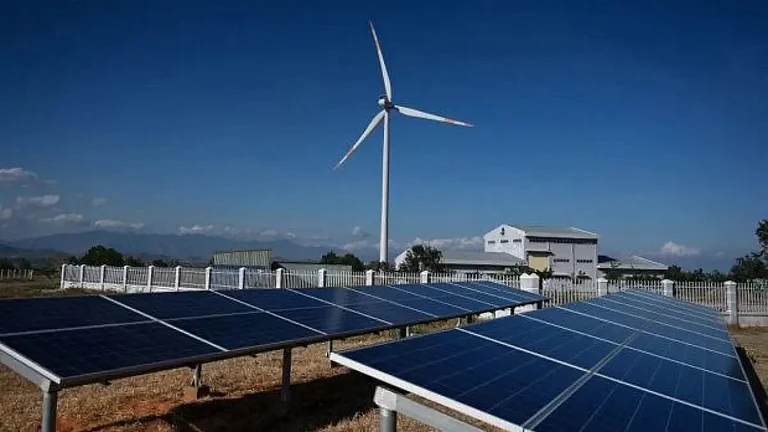India and Germany reaffirm 25 years of clean energy collaboration.
GIZ, KfW aid India’s solar, wind and Agri-PV innovations.
€1.4bn supports grid projects powering 40mn Indians sustainably.
Germany Backs India with Technical & Financial Support for Energy Transition
Germany extends technical and financial support to help India scale renewable transition
India and Germany have reaffirmed their shared long-standing commitment to advancing renewable energy and sustainable development as Parliamentary State Secretary Johann Saathoff concluded a four-day visit to India, the German Embassy said in an official release on November 2, reported ANI.
According to the release, the visit covered Chennai and Delhi-NCR and came as both nations marked the 25th anniversary of their strategic partnership, underscoring the strength of bilateral cooperation in technology, innovation and climate-friendly growth.
In New Delhi, Saathoff inaugurated the German Pavilion at the Renewable Energy India (REI) Expo 2025, where enterprises from both countries showcased technologies in solar, wind and green hydrogen.
Sathoff emphasised that the partnership reflects a unified approach by “Team Germany”, bringing together ministries, development organisations such as GIZ and KfW and the private sector to strengthen global renewable energy value chains, stated the release.
At the Indo-German CEO Roundtable on Solar Energy, organised by the Ministry of New and Renewable Energy (MNRE) and the National Solar Energy Federation of India (NSEFI), discussions centred on solar manufacturing, technology exchange and investment collaboration.
Saathoff stressed that renewable energy is both an economic driver and a moral responsibility to safeguard the planet for future generations, the release added.
He noted that Germany and India, both major renewable energy economies, are commitment to learning from each others’ experiences in integrating large-scale wind and solar power into their national grids, ensuring fair competition and sustainable industry growth.
As part of his concluding programme, Saathoff visited the Indian Agricultural Research Institute (IARI) in New Delhi, where he touted India’s Agri-Photovoltaic (Agri-PV) demonstration site developed in partnership with GIZ India.
The project illustrates how solar panels and agriculture can coexist productively, enabling farmers to generate both food and clean energy from the same land.
The release said Saathoff described Agri-PV as a “third harvest”, combining food and energy security while contributing to sustainable rural livelihoods.
India-Germany Clean Energy Alliance
Germany now supports India scaling up its clean-energy transition, both technically and financially. According to Germany’s development agency GIZ, India now avoids more than 110mn tonnes of CO2 annually which is almost 20% of Germany’s CO2 output under an Indian variant of emissions trading in conjunction with GIZ and BEE.
In addition, Germany has helped finance over €1.4bn in grid-integration projects that provide around 40 million Indians with renewable electricity.
India's objective to produce half of its electricity from non-fossil sources by 2030 is supported by this cooperative effort.

